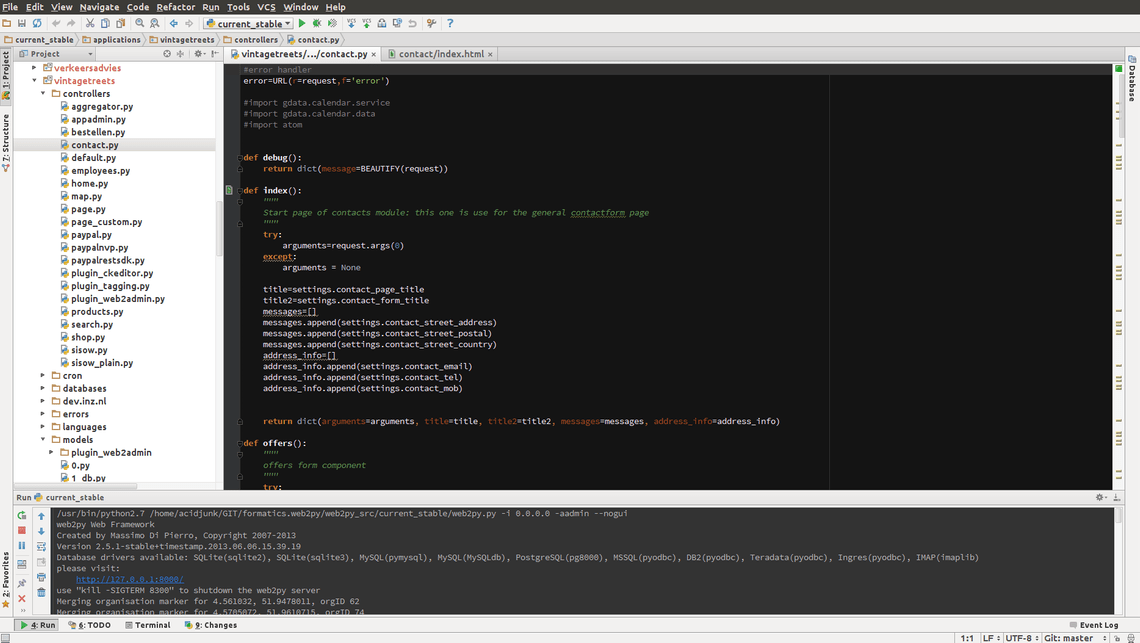Our current IDE, Eclipse with PyDEV has some nice features but feels rather slow and clumsy. You also have to install a lot of plugins to get a reasonably working development environment. If you also install egit you will need a fast computer with lots of RAM. Having a good IDE will boost productivity, especially in web2py projects were navigating between controllers and views involves a lot of files an folders.

PyCharm has a lot of cool features: - navigate from controller to view with one click (see the little “h” in my screenshot) - autocomplete nearly everything you type - refactor variables in controller and automatically rename the same variables in the views - run web2py from inside PyCharm - open multiple terminals in PyCharm - excellent Vim support with ideaVim plugin
Read an older detailed independant review here.http://andrewbrookins.com/tech/one-year-later-an-epic-review-of-pycharm-2-7-from-a-vim-users-perspective/
Install on Ubuntu
Step 1 and 2 can be skipped if you are already using Eclipse; it also works with openjdk; but only Sun Java is Supported by JetBrains. 1) Download the Sun/Oracle JRE from http://www.oracle.com/technetwork/java/javase/downloads/jre7-downloads-1880261.html and unzip it to /opt/ 2) Make sure PyCharm can find JAVA_HOME: add this to your /etc/profile/
3) Install PyCharm from: http://download.jetbrains.com/python/pycharm-professional-3.0.1.tar.gz. I just unzipped it to ~/Applications/ 4) Reboot to make the changes in /etc/profile permanent and available; other wise launching it form the Ubuntu Unity menu might not work.
Related Posts
Quick Links
Legal Stuff
